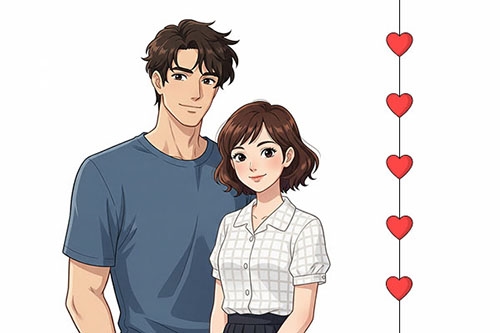A Quick Note: Before We Start
This guide is here to help you feel more confident and informed as you navigate dating. But remember: every dating journey is unique. These stages aren't hard rules! they're simply one way to understand how healthy relationships can grow over time. You might move through these stages in a different order, skip some, or revisit others. And that’s completely normal. Whether you're dating casually, looking for long-term love or focusing on yourself for now, this is your journey.
Dating today can feel confusing, even exhausting. Whether you're new to dating, coming out of a breakup or ready to find something real, it helps to understand how healthy relationships actually develop. Despite all changing rules, one thing hasn’t changed: great relationships grow in stages: emotionally, mentally, and practically.
Knowing what those stages are can help you feel less overwhelmed and more confident as you meet people, connect, and build something meaningful. This guide breaks down the 5 key stages of modern dating. Each one has its own focus, challenges and growth opportunities. Along the way, we’ll highlight important tips, real insights, and signs to look out for so you can date smarter.
Why Understanding the Stages of Dating Matters

Many common dating problems, like someone suddenly cutting off contact (ghosting), moving too fast or feeling confused after a few dates, happen because people don’t take enough time to build a real connection. These problems can lead to:
- Falling in love too quickly
- Getting attached before knowing someone well
- Ignoring red flags
- Losing yourself in the relationship
By learning these stages, you can:
- Date with purpose, not pressure
- Avoid burnout and dating confusion
- Build better emotional boundaries
- Spot healthy vs. unhealthy patterns
- Know when it’s time to move forward or let go
Let’s dive into each stage and see what to expect, what to avoid and how to grow.
Stage 1: Know Yourself First (Self-Preparation)
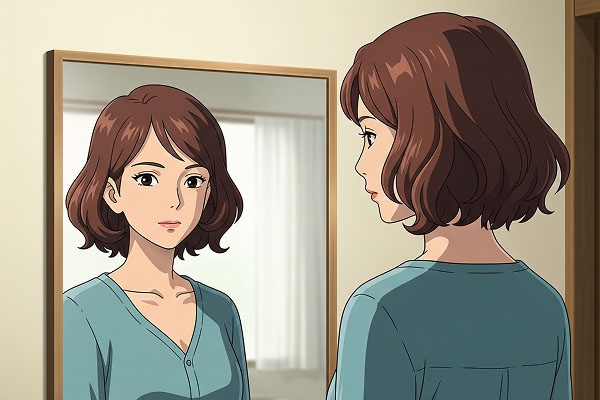
This stage is about emotional readiness. Before dating others, make sure you're emotionally ready.
- Are you dating to connect or to distract yourself from pain?
- Are you dating because you’re lonely or because you’re ready to build something meaningful?
Common Challenges:
- Carrying hurt from past relationships
- Low self-esteem or fear of rejection
- Confusing chemistry with connection
- Not knowing what you truly want
What To Focus On:
- Reflect on past patterns: what worked and what didn’t
- Understand your values and deal-breakers
- Build your confidence and emotional boundaries
Helpful Mindsets:
- "I'm dating to share love, not to fill a void."
- "I'm whole on my own, not waiting to be completed."
- "My boundaries are healthy, not walls."
💡 Tip:
Write down what really matters to you in a relationship. Come back to it if things get confusing or emotional. Some topics may bring up strong emotions. If you're feeling overwhelmed, healing from past experiences or unsure about your emotional readiness, it’s okay to seek support. Your safety and well-being come first.
👉 Learn more about Stage 1: Self-Preparation 🔗
Stage 2: Meeting People (Discovery)
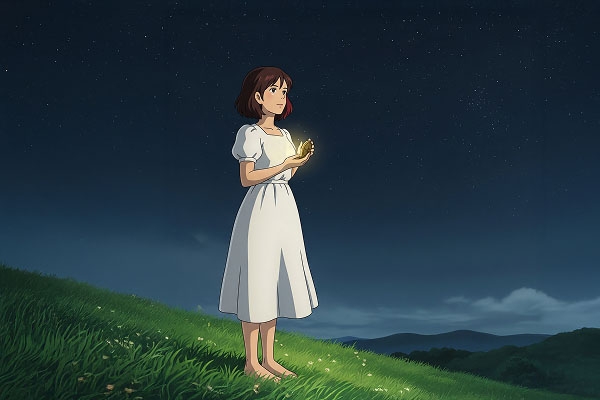
This is where you explore connections, whether through apps, friends, or social events. The goal isn’t to find "the one" right away. It's to learn what fits. You talk to people you’re interested in and give yourself the chance to get to know them better.
Common Challenges:
- App fatigue or burnout
- Comparing yourself to others
- Rushing in or settling too soon
- Feeling pressure to impress
What To Focus On:
- Be honest in your profile and conversations
- Listen to your gut: if something feels off, trust it
- Don’t try to "win" people over, Just be yourself
Helpful Mindsets:
- "It's okay to say no."
- "I bring value by being real."
- "Quality over quantity."
💡 Tip:
Always meet in public. Tell someone where you're going. Don't share private details too soon.
👉 Learn more about Stage 2: Discovery 🔗
Stage 3: 1 to 5 First Dates (Early Connection)

Now you’re talking and meeting up. This is where things get fun, but it’s also important to go at a healthy emotional pace.
Look beyond chemistry: Do your values, goals and lifestyles match?
Common Challenges:
- Getting attached too quickly
- Ignoring early red flags
- Feeling ghosted or confused
What To Focus On:
- Ask meaningful questions: "What does a healthy relationship look like to you?"
- Pay attention to how someone makes you feel, not just what they say
- Don’t build a future in your head too soon
Helpful Mindsets:
- "I’m here to learn, not to prove myself."
- "Connection is a two-way street."
- "If it doesn’t feel right, it's okay to step away."
💡 Tip:
Give yourself time to observe actions, not just words. Chemistry fades, character lasts. Don’t ignore gut feelings or small warning signs.
👉 Learn more about Stage 3: Early Connection 🔗
Stage 4: Becoming Exclusive (Early Relationship)

If things feel good for both of you, you’re probably becoming exclusive. You’re spending more time together, opening up more and maybe even talking about the future. Emotional closeness grows, but so do questions about labels, expectations and boundaries.
Common Challenges:
- Fear of vulnerability or rejection
- Comparing this relationship to the past
- Avoiding hard conversations
What To Focus On:
- Keep your identity and hobbies strong
- Talk openly about boundaries, communication styles and future hopes
- Build trust through honesty and consistency
Helpful Mindsets:
- "We’re a team, not opponents."
- "I can share how I feel without fear."
- "Love grows with honesty and care."
💡 Tip:
Schedule regular check-ins. Ask: "How are we doing?"
Make space for each other’s needs and dreams.
👉 Learn more about Stage 4: Early Relationship 🔗
Stage 5: Growing Together (Partnership)
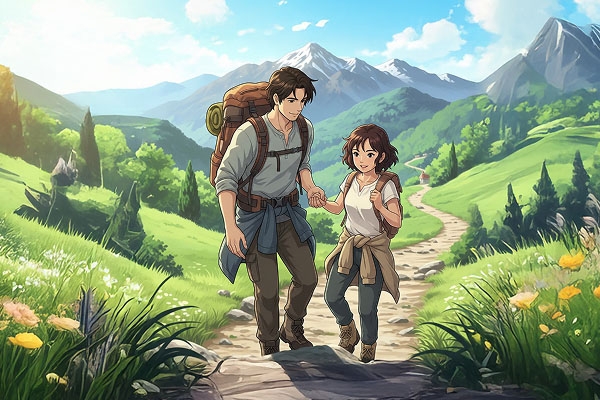
This is the stage where you’re not just dating, you’re building a real relationship and sharing your lives. You're choosing each other on purpose and now it’s about keeping that love strong over time. But many relationships fade here, not because there’s no love, but because people stop trying. The key is to keep growing together while keeping your sense of self.
Common Challenges:
- Getting stuck in routine
- Taking each other for granted
- Avoiding deeper topics about the future
What To Focus On:
- Stay curious: ask about each other’s thoughts, dreams and feelings
- Keep dating each other with intention
- Grow as individuals while nurturing the relationship
Helpful Mindsets:
- "We choose love every day."
- "Growth means staying connected and supportive."
- "We can have fun and be serious together."
💡 Tip:
Keep dating each other. Plan regular date nights, even when you’re busy. Talk about the future, not just “what are we doing this weekend?” but “where do we see ourselves in a year?” When talking about problems, use “I feel” instead of blaming.
👉 Learn more about Stage 5: Partnership 🔗
✨ Bonus: The Dating Feedback Loop

Sometimes, you go back to earlier stages. That’s not failure. It’s growth. You might:
- Re-enter the dating scene after a breakup
- Realize you’ve lost touch with your needs
- Need to pause and heal
Each time you return to earlier stages, you're starting wiser. Not from scratch.
👉 Learn more about The Feedback Loop in Dating 🔗
🧭 Final Thoughts: Dating is a Journey
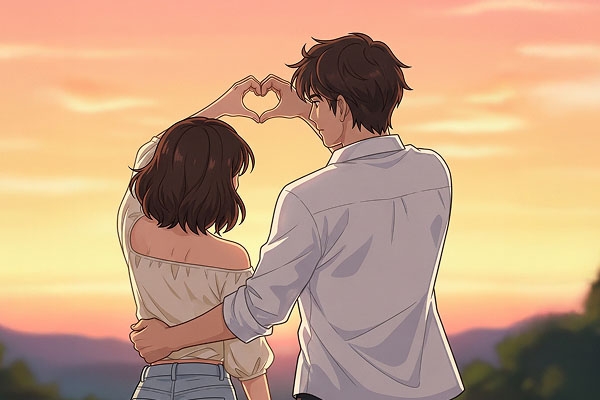
Dating isn’t just about finding the right person. It’s about becoming someone who knows how to build healthy love. The more intentional you are, the more empowered you'll feel.
Each stage helps you understand your needs, respect your values and boundaries, and learn how to give and receive love. You grow emotionally, not just romantically. The more intentional you are, the more empowered you become in your dating life.
When you take your time, date with purpose, and honor your feelings, love isn’t a guessing game, it’s a journey of growth. Keep showing up with honesty, curiosity and care; for yourself and for others.
❓ Frequently Asked Questions
| 1. How do I know I'm ready to date? |
|---|
| When you're at peace with your past, feel grounded in yourself and are excited to meet others, not desperate to escape loneliness and know your core values. |
| 2. How long should I date before becoming exclusive? |
|---|
| There's no set rule. If you're both clear, emotionally safe and genuinely connecting, 3–5 dates might be enough to have the conversation. |
| 3. What if someone is rushing me? |
|---|
| Healthy relationships don’t pressure. If someone’s pushing for labels or intimacy before trust is built, slow down or step back. |
| 4. Can we revisit earlier stages even in a long relationship? |
|---|
| Absolutely. Real relationships evolve. Checking in, reconnecting, and rediscovering each other is part of staying close. |
| 5. What is the biggest mistake people make in early dating? |
|---|
| Rushing into emotional intimacy without checking for compatibility. It’s easy to mistake excitement for depth. |
| 6. How long should each dating stage last? |
|---|
| There's no fixed timeline, but each stage could take weeks or months, not days. Move at the speed of mutual comfort and communication. |
| 7. How do I know if I'm ready to date again after a breakup? |
|---|
| If you're no longer obsessing over your ex, feel emotionally grounded, and are excited (not desperate) to meet new people, you’re likely ready. |
Table of content
- A Quick Note: Before We Start
- Why Understanding the Stages of Dating Matters
- Stage 1: Know Yourself First (Self-Preparation)
- Stage 2: Meeting People (Discovery)
- Stage 3: 1 to 5 First Dates (Early Connection)
- Stage 4: Becoming Exclusive (Early Relationship)
- Stage 5: Growing Together (Partnership)
- ✨ Bonus: The Dating Feedback Loop
- 🧭 Final Thoughts: Dating is a Journey
- ❓ Frequently Asked Questions
